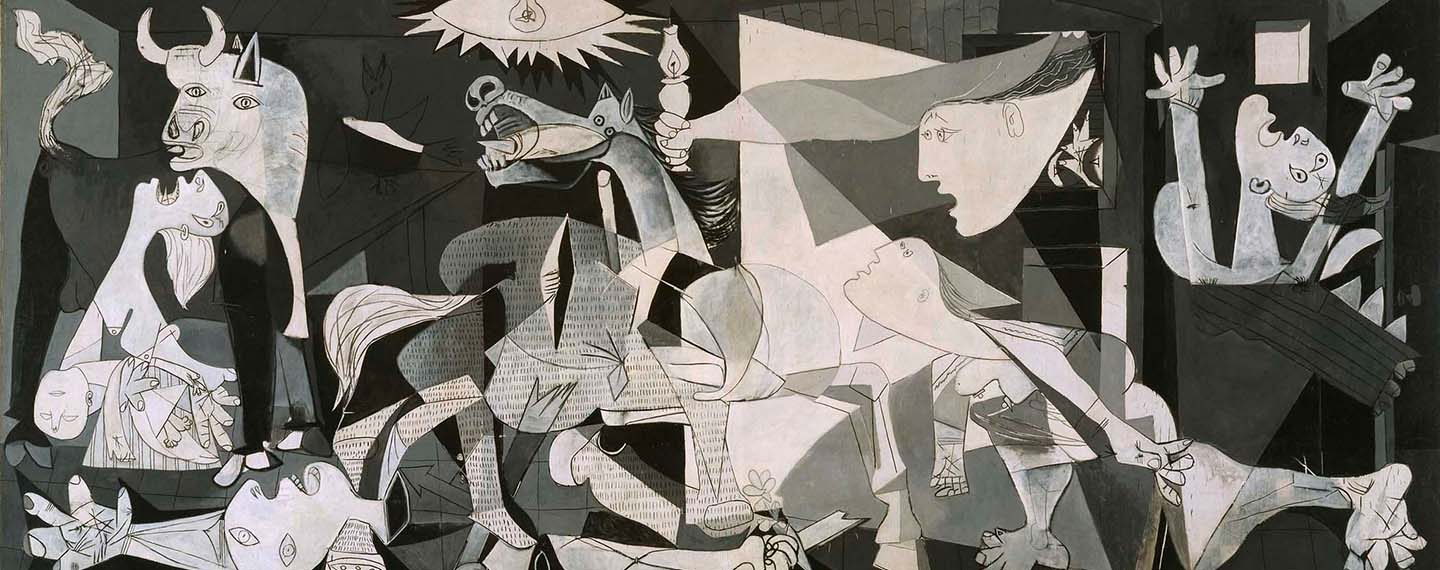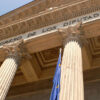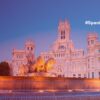‘To see what is in front of one’s nose needs a constant struggle’
George Orwell, Tribune, 22/III/1946
Spain’s 1936-39 Civil War had a profound impact on George Orwell’s writing and life, as a new biography of him shows. But for Orwell’s experience, particularly the hunting down and silencing of Communist dissidents by the Stalinist party and the deceit that surrounded this, it is quite likely he would not have written Animal Farm and 1984, his two classic novels.
‘It is not an exaggeration to say that Spain altered the way in which he looked at the world, and dominated his life after returning to the UK’, says D.J. Taylor, the author of the richly detailed and illuminating biography, recently published by Constable in the UK and Pegasus in the US. Spain is mentioned on 84 pages of the 540-page long book.
Orwell arrived in Barcelona at the end of 1936 for around six months, 100 days of it on the Aragon front where he was wounded by a bullet in the throat which missed his carotid artery by a few millimetres. He wanted to join the International Brigades in the fight against ‘fascism’, which attracted around 35,000 volunteers from across the world and another 5,000 in militias, but Harry Pollitt, the Secretary General of the Communist Party of Great Britain, thought Orwell politically unreliable (which he was, and dangerously so as he was to discover) and turned him down. Orwell then approached the Independent Labour Party, a small, maverick socialist party allied to the anti-Stalinist Workers’ Party of Marxist Unification (POUM), which welcomed him.
Before coming to Spain, Orwell closely followed events in the country. There is a reference to the battle for Madrid towards the end of his non-fiction book The Road to Wigan Pier, published by Victor Gollancz in a Left Book Club edition. Orwell arrived politically naïve, not the least about the role the Communists were playing in Spain, and with little political consciousness. This quickly changed when he discovered he had come to the attention of the spy network of the Communist International (Comintern) for being politically suspect.
The Soviet Union, the main supplier of arms to the beleaguered Republic, prioritised winning the war over revolution, while the POUM and anarchists felt that victory without revolution was impossible. José Díaz Ramos, General Secretary of the Spanish Communist Party, denounced the POUM as ‘agents of Fascism, who are carrying out their major missions as agents of our enemies in our own country’.
The tensions between leftist factions boiled over in Barcelona in May 1937 when they fought one another in the streets, in a civil war within a civil war, after the Communist Party and its Catalan branch tried to take over an anarchist-controlled telephone exchange. Orwell spent three nights on the roof top of the Poliorama cinema with a rifle to help defend the POUM headquarters across the road.
The street-fighting produced a death toll of 218 people and the demonisation of the POUM in a nightmarish climate. A Special Tribunal for Espionage and High Treason was created. Andreas Nin, the leader of the ‘Trotskyist-fascists’ of the POUM, was arrested and subsequently killed after being savagely tortured. The POUM was outlawed and most of the 40 members of the executive committee arrested and jailed including Georges Kopp, Orwell’s commander, who was interrogated, tortured and moved between prisons and detention camps in and around Barcelona for 18 months. His friend Bob Smillie died in jail. The room of Orwell and his wife Eileen, who had joined him, was raided and plainclothes policemen spent two hours examining Orwell’s papers and books. A warrant was subsequently issued for their arrest as ‘pronounced Trotskyists’ conspiring with dissidents in Moscow.
Orwell was particularly incensed by a poster reading ‘Tear the mask’, which depicted a mask, bearing the hammer-and-sickle, being ripped off to reveal a snarling, swastika-tattooed maniac, allegedly the true face of the POUM. His eyes were also opened by a presumed agent for Stalin’s secret police, known as ‘Charlie Chan’, who proclaimed that the street violence was an anarchist putsch to undermine the Republic and aid Franco. ‘It was the first time I had seen a person whose profession was telling lies,’ Orwell wrote. One of those lies was that the Communists had managed to ‘dismantle’ a network of anarchist traitors who had been communicating –via secret radio stations and messages written in invisible ink– with the Fascists about assassinating Republican leaders.
‘What was at stake’, writes Taylor, ‘as well as Orwell’s desire that Spain should be free of Franco, was his distaste for the strong- arm tactics of left-wing political movements bent on the suppression of unorthodox views’.
It was Eileen who convinced Orwell of the danger they were in, and that they had to get out. She made him tear up his militiaman’s card and a photograph of a group of soldiers with a POUM flag flying in the background.
Spain remained uppermost in Orwell’s mind after he returned to England at the end of June 1937. ‘Every line of serious work that I have written since 1936 has been written, directly or indirectly, against totalitarianism and for democratic socialism,’ he declared in his 1946 essay ‘Why I Write.’ He filed many pieces of journalism that turned in some way on the conflict and reviewed books on Spanish subjects, including The Forge by Arturo Barea and Gerald Brenan’s The Spanish Labyrinth in Horizon, the leading literary magazine.
The atmosphere of terror in Barcelona so permeated Orwell that he was reluctant to visit various Islington pubs in the mid-1940s for fear of their harbouring hostile Stalinists who remembered him from Spain. As well as politicising him, Spain pushed Orwell towards activism. A year after returning to England, he joined a political party for the first time in his life.
To his dismay, but not surprise, he found in England the same deceit he had witnessed in Barcelona. The Communist fellow-traveller Gollancz refused to publish Homage to Catalonia and Kingsley Martin, editor of the New Statesman, turned down Orwell’s essay about the war. He found another outlet for the essay titled ‘Spilling the Spanish Beans’, in which he wrote: ‘People who ought to know better have lent themselves to the deception on the ground that if you tell the truth about Spain it will be used as Fascist propaganda’.
Orwell looms large today in the war between Russia and the Ukraine, which Vladimir Putin, more than one year after his invasion, still calls in Orwellian doublespeak a ‘special military operation’.
Spain also had another and tragic impact on Orwell. It ruined his health, contributing to his early death in 1950 of tuberculosis at the age of 46.



